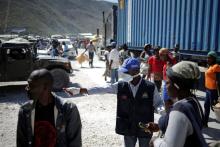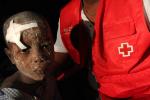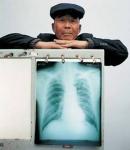Coronavirus Outbreaks at Border Put Haitian Migrants at Risk
Haitians have long worked in the Dominican Republic due to the lack of opportunities at home. With the Dominican economy contracting due to the pandemic, many Haitian migrants are returning home. The World Health Organisation's western hemisphere branch (Pan American Health Organisation) has established screening and quarantine centers at border crossings in the region but with 269 informal crossing points and only four formal crossing points ensuring the health needs of returning migrants is a daunting task - especially when they fear their own communities may stigmatise them. The full article by New York Time journalist David Waldstein follows.





